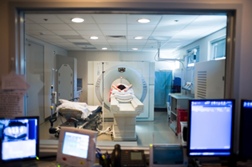
According to a 2/9/10 report in the New York Times, The FDA became involved after discovering last year that patients were given too much radiation during routine scans used to detect medical issues such as strokes.
At Cedars-Sinai Medical Center in Los Angeles in 2009, patients were given up to eight times more radiation than intended. Given that CT scans and similar procedures expose patients to radiation levels equal to about 400 X-rays, over-radiation appears to involve serious exposure. Suddenly, the equivalent of 400 chest X-rays becomes 3200 in one procedure.
The errors occurred over an 18-month period and were detected only after patients started losing their hair.
In a report published in January, the New York Times documented certain failings in an industry that is affecting more and more people, given the increasing number of hospitals that use CT scans and other diagnostic imaging involving radiation. For example, there are no alarms or indicators on the machinery to alert an operator when he or she has exceeded safe limits of radiation.
"There is nothing on the machine that tells the technologist that they've dialed in a badly incorrect radiation exposure," said Dr. James Thrall, professor of radiology at Harvard Medical School and chairman of the American College of Radiology. He thinks the announcement of increased oversight by the FDA is "very timely in light of concerns about radiation exposure and the possibility of overexposure. I think it will nudge the industry."
Due to the growing availability of diagnostic imaging, together with its popularity and effectiveness as a diagnostic tool, exposure levels to medical radiation over a patient's lifetime has increased seven-fold in the last 30 years.
READ MORE CT BRAIN SCAN RADIATION LEGAL NEWS
Three types of procedures are under the FDA microscope: CT scans, which provide three-dimensional images; nuclear medicine studies, where doctors monitor a radioactive substance as it passes through a patient's body; and fluoroscopies, where a radiation-emitting device provides a continuous internal image on a monitor.
For its part, the American Society for Radiation Oncology would like to see a central database for the reporting of errors involving linear accelerators and CT scanners. Manufacturers have said they would welcome a more uniform licensure and registration framework for operators and technicians.
